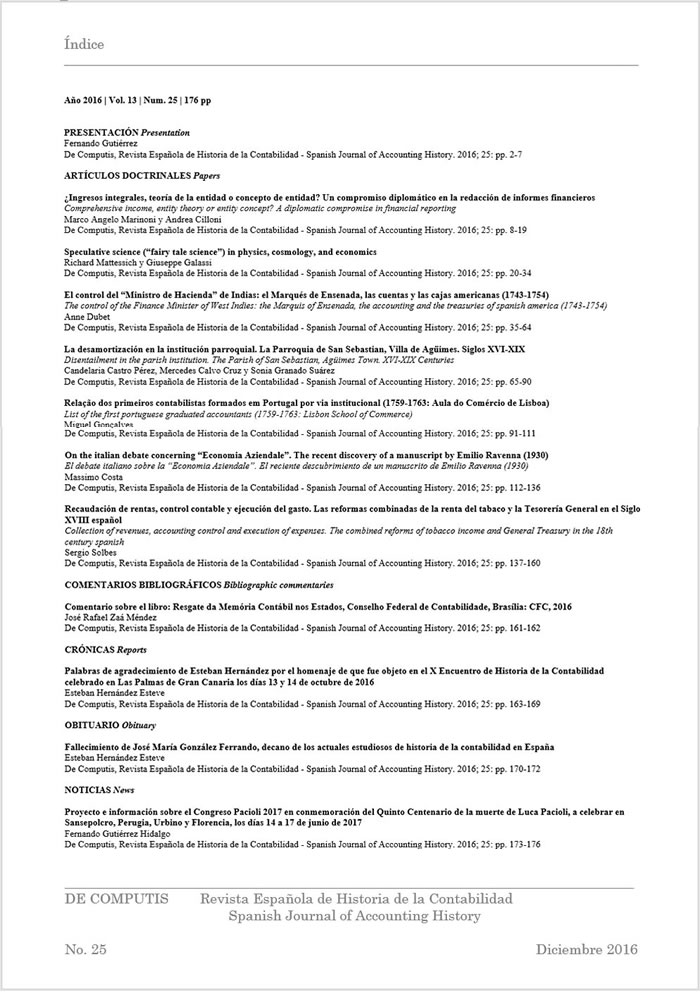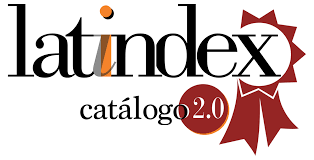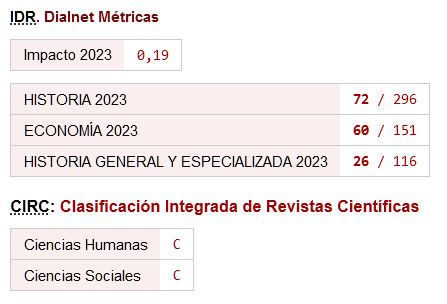On the italian debate concerning "Economia Aziendale"
the recent discovery of a manuscript by Emilio Ravenna (1930)
Palabras clave:
“Economia aziendale”, Tuscan School, Venetian School, Scientific Accounting, General Theory of AccountingResumen
The paper relies upon the recent discovery of the textbook of Accounting adopted in Palermo’s High Business School (the ‘ancestor’ of the Faculty of ‘Economics & Business’, founded after in 1936), just in its first years of opening (academic year 1930-31). It is a printed manuscript. This book was written by the local professor of Accounting, Emilio Ravenna, who operated in Sicily between the last decades of XIX century and the first ones of XX one, commonly considered (Guzzo, 2003) an intermediate scholar between the ‘Venetian’ (Besta) and ‘Tuscan’ (Cerboni) Italian Schools, adhering to the former for the accounting method and to the latter for the general theory of administrative functions, but here revealing more as belonging to the latter. The book is placed within a period of strong debate for the Italian community, after Zappa’s manifesto for the new science of “Economia aziendale”, and also includes a full conception of Accounting as an open criticism to “Economia aziendale”.
The interest for this discovery is due to the explicit answer to the defy launched at ‘Ca’ Foscari’ (University of Venice) by Gino Zappa. But the most relevant issue is that this answer does not come from the main ‘Venetian School’ of Besta disciples, then dominating in Italy, but from a true ‘survivor’ of the older ‘Tuscan School’, strictly follower of Giovanni Rossi work, and in those times already declined. It is noteworthy the fact Ravenna generally agrees with Zappa, confuting, however, only that his conceptions would be really new. The following paper, then, presenting the basic contents of the aforementioned book, with a peculiar stress on the doctrinal items concerning Accounting and “Economia aziendale”, reveals a continuity, perhaps overestimated by Ravenna, between the late XIX-century ‘Scientific Accounting’ by Cerboni and the early XX-century “Economia aziendale” by Zappa
Descargas
Citas
Alexander, D.; S. Servalli (2011) "Economia aziendale and Financial Valuations in Italy: some Contradictions and Insights", Accounting History, 16, 3, 291-312. https://doi.org/10.1177/1032373211407052
Ardemani E. (1968) "L'evoluzione del concetto di impresa e dei sistemi contabili in Italia", Rivista dei Dottori Commercialisti, 3, 411-430.
Baker, C. R. (2011) "A genealogical history of positivist and critical accounting research", Accounting History,16, 2, 207-21. https://doi.org/10.1177/1032373210396335
Beyer, A.; D.A. Cohen; T.Z. Lys and B.R. Walther (2010) "The financial reporting environment: review of recent literature", Journal of Accounting and Economics, 50, 2-3, 296-343. https://doi.org/10.2139/ssrn.1483227
Bonollo, E. (2000/01) "Emilio Ravenna: contributo dottrinale di uno studioso nel passaggio dalla scuola del Cerboni a quella del Besta", in G. Catturi (edited by) Ritratti d'autore, n. 3, 2, Siena.
Canziani, A. (1994) "Gino Zappa (1879-1960) Accounting Revolutionary", in J. R. Edwards (Ed.) Twentiethcentury Accounting Thinkers, London-New York: Routledge, 142-65.
Cinquini, L. (2007) "Fascist Corporative Economy and Accounting in Italy during the Thirties: Exploring the Relations between a Totalitarian Ideology and Business Studies", Accounting, Business & Financial History, 17, 2, July, 209-40. https://doi.org/10.1080/09585200701376550
Coronella, S. (2014) Storia della ragioneria italiana - Epoche, uomini e idee, Milan: Franco Angeli.
Costa, M. (2001) Le Concezioni della Ragioneria nella Dottrina Italiana, Turin: Giappichelli, 55-6.
Dagnino, G.B. and Quattrone, P. (2006) "Management and Business Research Italian Style: The Methodological Contribution of Economia Aziendale to Business Economics", Journal of Management History, 12, 1, 36-52.
De Gobbis, F. (1934) "Tendenze nuove negli studi di ragioneria?", Rivista italiana di Ragioneria, 34.
Diggins, J. P. (1972) Mussolini and the Fascism: the view from America, Princeton University Press.
Duggan, C. (1994) A Concise History of Italy, Cambridge University Press.
Evans, L. (2004) "Language, translation and the problem of international accounting communication", Accounting, Auditing & Accountabulity Journal, 7, 2, 210-48. https://doi.org/10.1108/09513570410532438
Galassi, G. (1984) "Accounting Research in Italy: Past, Present and Future", in A. G. Hopwood; H. Schreuder (Eds.) European Contributions to Accounting Research: The Achievement of the Last Decade, Amsterdam: Free University Press, pp. 163-87.
Galassi, G. and R. Mattessich (2004) "Italian Accounting Research in the First Half of the 20th Century", Review of Accounting and Finance, 3, 2, 62-83. https://doi.org/10.1108/eb043403
Guzzo, G. (2003) "Il pensiero eclettico di Emilio Ravenna tra logismologia e patrimonialismo", Annali della Facoltà di Economia - Università degli studi di Palermo, LIV-LVII, 99-143.
Hopwood, A.G. (1983) "On trying to study accounting in the context in which it operates", Accounting, Organization and Society, 8, 2-3, 287-305. https://doi.org/10.1016/0361-3682(83)90035-1
Killinger C. L. (2002) The History of Italy, Greenwood Publishing Group.
Mattessich, R. (2008) Two Hundred Years of Accounting Research - An International Survey of Personalities, Ideas and Publication, London-New York: Routledge, 97. https://doi.org/10.4324/9780203939857
McWatters, C. S. (2014) Historical accounts, conversations and contexts, Accounting History, 25, 1, 1-5. https://doi.org/10.1080/21552851.2014.923596
Poddighe, F.; Coronella, S.; Madonna, S. and Deidda Gagliardo, E. (2007) "Francesco Marchi and the Development of Logismology", Accounting, Business and Financial History, 17, 1, 11-32.
Ravenna, E. (1909) Trattato teorico-pratico di Ragioneria, Palermo: Reber.
Ravenna, E. (1930/31) Dispense di Ragioneria generale commerciale, Palermo: Gruppo Universitario Fascista.
Sargiacomo, I.; Ianni, L., D'Andreamatteo A. and D'Amico L. (2016) "Accounting and the Governmente of the Agricultural Economy: Arrigo Serpieri and the Reclamation Consortia", Accounting History Review, 26, 3, 307-31.
Sargiacomo, M.; S. Servalli and P. Andrei (2012) "Fabio Besta: Accounting Thinker and Accounting History Pioneer", Accounting History, 22, 3, 249-67. https://doi.org/10.1080/21552851.2012.728904
Torrecchia, P. and M. Costa (2012) "More than a Technical Discipline: the Accounting Culture in Italy - AGlance through the Schools", in Papers on Accounting and Accounting History, Rome: Rirea, 2012, 187-217.
Torrecchia, P. and B. Yamey (2012) "Giuseppe Cerboni: Accounting Theorist and Practitioner", in Papers on Accounting and Accounting History, Rome: Rirea, 2012, 263-72. https://doi.org/10.1007/978-3-642-28036-8_191
Watts, R. y J. Zimmerman (1986) Positive Accounting Theory, Englewood Cliff (NJ): Prentice-Hall.
Viganò, E. (1998) "Accounting and Business Economics Traditions in Italy", European Accounting Review, 7, 2, 381-403. https://doi.org/10.1080/096381898336349
Witzel, M. (2012) A history of management thought, New York: Routledge. https://doi.org/10.4324/9780203145609
Woodley, D. (2010) Fascism and Political Theory - Critical Perspective on Fascist Ideology, Routledge. https://doi.org/10.4324/9780203871577
Zambon, S. and Zan, L. (2000) "Accounting relativism: the unstable relationship between income measurement and theories of the firm", Accounting, Organization and Society, 25, 799-822.
Zan, L. (1994) "Toward a History of Accounting Histories - Perspective from the Italian Tradition", European Accounting Review, 3, 2, 252-310. https://doi.org/10.1080/09638189400000021
Descargas
Publicado
Cómo citar
Número
Sección
Licencia

Esta obra está bajo una licencia internacional Creative Commons Atribución-NoComercial-CompartirIgual 4.0.










